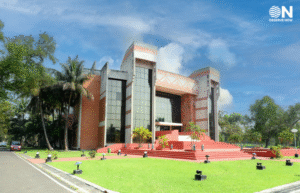The Tamil Nadu Technology Hub (iTNT Hub), inaugurated by the Hon’ble Chief Minister Thiru. M.K. Stalin in May 2023, celebrated its first iTNT Day in Chennai on Thursday. Established with the support of the Ministry of Electronics and Information Technology (MeitY), Government of India, and the Information Technology and Digital Services (IT&DS) Department, Government of Tamil Nadu, the hub has garnered significant industry backing.
The event brought together international partners, industry leaders, academics, innovators, startup founders, and government officials, marking the creation of India’s first Deep Tech Innovation Network aimed at fostering transformative global innovation. The gathering set the stage for key initiatives for 2024-25.
Dr. Palanivel Thiaga Rajan, the Hon’ble Minister for IT&DS, delivered the keynote address, emphasizing the strength of Tamil Nadu’s startup ecosystem in Deep Tech and Emerging Tech. Dr. J. Jeyaranjan, Vice Chairman of the Tamil Nadu State Planning Commission, highlighted iTNT’s role in driving innovation in the state’s economy.
MeitY Secretary Thiru. S. Krishnan, I.A.S., discussed the forthcoming National Deep Tech Startup Policy designed to create a supportive environment for innovation. Additional Chief Secretary to Government, IT&DS, Thiru. Dheeraj Kumar, I.A.S., detailed the department’s efforts to bolster Tamil Nadu’s Emerging and Deep Tech sectors through broad stakeholder engagement.
The Hub signed MoUs with several key entities, including Tamil Nadu Smart and Advance Manufacturing Centre (TANSAM) with Siemens, Tamil Nadu Centers of Excellence for Advanced Manufacturing (TANCAM) with Dassault Systèmes, Tamil Nadu Infrastructure Fund Management Corporation (TNIFMC), Amazon Web Services (AWS) India, Microsoft India, D Labs Incubator Association, India School of Business (ISB), T-Hub, and T-Works, Hyderabad.
A highlight of the event was the two “Technology Transfers” facilitated by iTNT Hub via its “Jigsaw” platform, overseen by the Hon’ble Minister for IT&DS. Jigsaw, which promotes Industry-Academia collaboration, was launched earlier this year by Thiru. Udhayanidhi Stalin, the Hon’ble Minister for Youth Welfare and Sports Development. Over 4,100 academic researchers specializing in Emerging and Deep Tech fields have joined this platform.
The Technology Transfers involved Sathyabama Institute of Science and Technology researchers, including an Expression of Interest signed by Dr. Manjula, Assistant Professor, Department of Physics, and Astromeda Space Private Limited, and an MoU between Dr. Parthasarathy, Scientist E, Centre for Drug Discovery and Development, and Vivagen Dx Labs (OPC) Pvt. Ltd.
Tmt. Vanitha Venugopal, CEO of iTNT Hub, moderated a panel discussion on “Intellectual Property & Tech Transfer for Deeptech Innovations – Role of Academia, Startups, Government, and Industry,” featuring Dr. R. Velraj, Vice Chancellor of Anna University; Mr. Thangapandian, Joint Controller, Office of the Controller General of Patents, Designs & Trademarks; Mr. Krishna Chaitanya, CEO of TNIFMC; and Mr. P. Padmakumar, Chairman of CII SR Skills Taskforce & ED.
Additionally, MoUs were signed with 50 higher education institutions to promote research, development, and innovation on campuses by supporting academic researchers, innovators, and student entrepreneurs. Key officials from the Union Ministry of Electronics & Information Technology (GoI) and the IT&DS Department (Tamil Nadu) addressed the exclusive gathering.
























